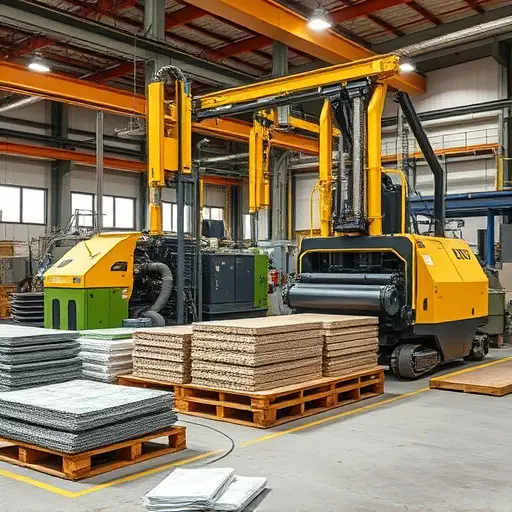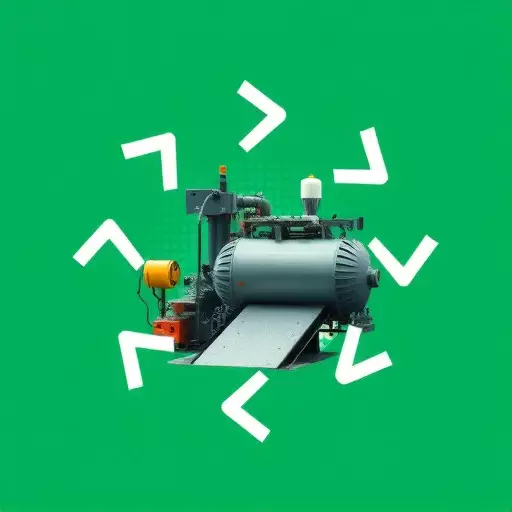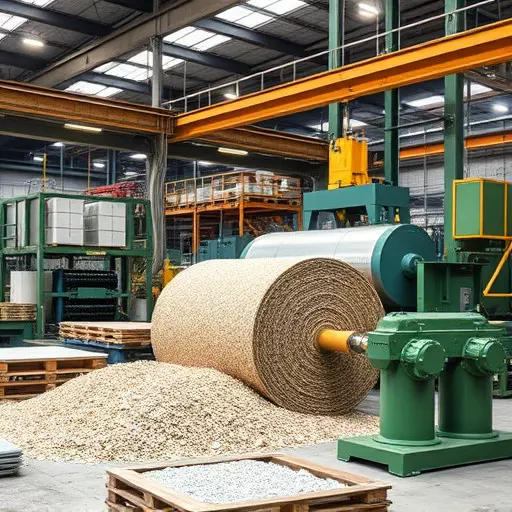Waste sorting technologies are crucial for advancing towards a circular economy and enabling eco-friendly manufacturing. In Toledo, these innovations streamline sustainable material processing by accurately separating plastic, paper, glass, and metal using machine learning, sensors, and robotic systems. This minimizes landfill waste, conserves natural resources, reduces greenhouse gas emissions, and opens economic opportunities. Eco-friendly manufacturing in Toledo focuses on recycling, composting, and repurposing waste materials, reducing environmental impact while maximizing resource value. Adopting these practices transforms the linear economy into a closed-loop system, fostering job growth, technological advancements, and global climate change mitigation efforts. The future of waste sorting is bright, driven by AI and automation for enhanced accuracy and efficiency in sustainable material processing.
Waste sorting technologies are evolving rapidly, with innovative solutions transforming how we manage our environmental footprint. In this comprehensive guide, we explore the dynamic landscape of waste management, focusing on sustainable material processing in Toledo and its pivotal role in fostering eco-friendly manufacturing. From understanding the basics to delving into emerging technologies, we uncover why embracing the circular economy is not just beneficial but essential for a sustainable future.
- Understanding Waste Sorting Technologies: A Brief Overview
- The Role of Sustainable Material Processing in Toledo
- Eco-Friendly Manufacturing: Innovations and Benefits
- Embracing the Circular Economy: Why It Matters
- Future Prospects: Emerging Technologies for Efficient Waste Management
Understanding Waste Sorting Technologies: A Brief Overview
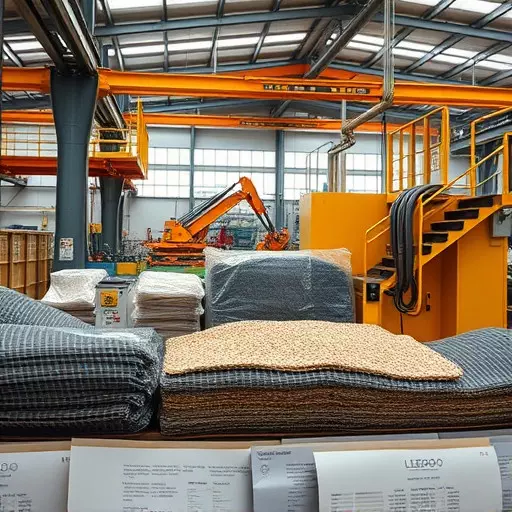
Waste sorting technologies play a pivotal role in transitioning towards a circular economy and facilitating eco-friendly manufacturing processes. These innovative solutions are designed to enhance sustainable material processing by efficiently separating and categorizing various types of waste, such as plastic, paper, glass, and metal. The primary goal is to reduce the environmental impact of waste disposal while recovering valuable resources for reuse or recycling.
Modern waste sorting technologies employ advanced machine learning algorithms, sensors, and robotic systems to automate the process, increasing accuracy and productivity. For instance, optical sorters use cameras and lights to identify and separate materials based on their physical properties, while air classifiers separate particles based on their weight and size. These eco-friendly manufacturing techniques not only minimize landfill waste but also contribute to a more sustainable future by conserving natural resources and reducing greenhouse gas emissions.
The Role of Sustainable Material Processing in Toledo
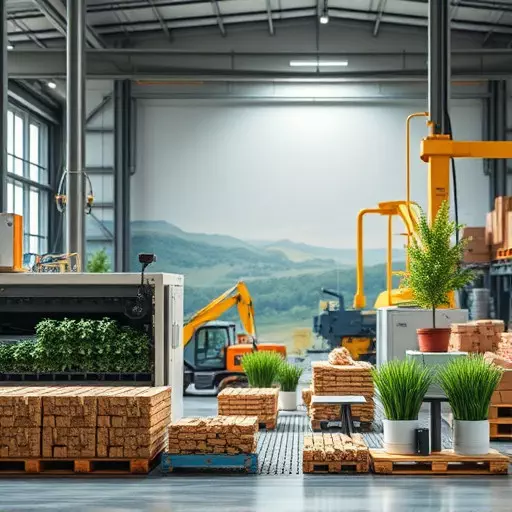
In Toledo, the concept of sustainable material processing is taking root and transforming the way waste is managed. The city’s efforts to embrace eco-friendly manufacturing practices are a crucial step towards a greener future. By focusing on sustainable material processing toledo, the region is contributing to the global shift towards a circular economy. This involves recycling, composting, and repurposing materials to reduce waste and minimize environmental impact.
Toledo’s commitment to these initiatives stems from the recognition that traditional waste disposal methods are not sustainable in the long run. Eco-friendly manufacturing techniques allow for the recovery of valuable resources from municipal solid waste, industrial byproducts, and agricultural residues. This not only helps in reducing landfill spaces but also creates new revenue streams through the sale of recycled materials, fostering a more sustainable and prosperous local economy.
Eco-Friendly Manufacturing: Innovations and Benefits
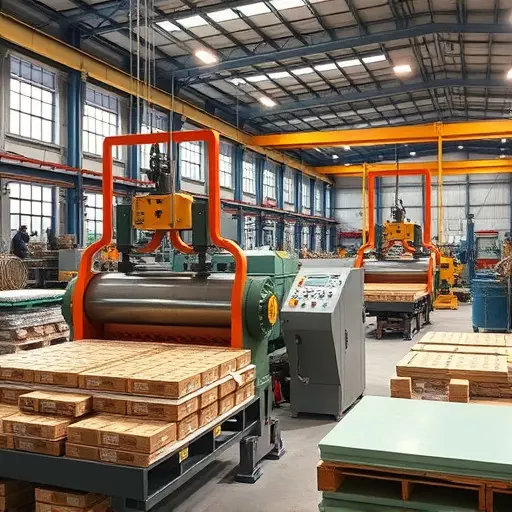
Eco-friendly manufacturing is a growing trend in the waste sorting and recycling industry, revolutionizing the way we approach sustainable material processing in Toledo and beyond. This innovative approach focuses on minimizing environmental impact while maximizing resource value. By adopting eco-friendly practices, manufacturers are contributing to the circular economy, where waste becomes a valuable resource. One key benefit lies in the development of advanced technologies that enable efficient sorting and recycling processes, ensuring higher quality outputs.
These manufacturing innovations use sustainable materials and energy-efficient methods, reducing carbon footprints significantly. The shift towards eco-friendly practices not only benefits the environment but also offers economic advantages. It creates new business opportunities, fosters job growth in green industries, and promotes a more resilient and circular waste management system. As the demand for sustainable solutions increases, so does the potential for technological advancements, leading to a greener and more prosperous future.
Embracing the Circular Economy: Why It Matters

Embracing the Circular Economy: Why It Matters
In today’s world, where sustainability is at the forefront of global discussions, the shift towards a circular economy is not just a trend but an imperative. This economic model revolves around reducing waste, recycling, and regenerating resources, ensuring that products and materials are reused and repurposed efficiently. By adopting sustainable material processing in Toledo and eco-friendly manufacturing practices, we can significantly reduce our environmental footprint. The traditional linear economy, where resources are extracted, used, and then discarded, has led to unprecedented levels of waste and pollution.
The circular economy offers a promising alternative by encouraging innovative waste sorting technologies and sustainable production methods. Through advanced recycling techniques, material recovery, and upcycling, we can create a closed-loop system that minimizes the need for virgin resources. This not only conserves our planet’s finite resources but also fosters a more resilient and environmentally friendly manufacturing sector. By embracing these practices, Toledo can become a leader in sustainable material processing, contributing to global efforts to combat climate change and preserve our natural resources for future generations.
Future Prospects: Emerging Technologies for Efficient Waste Management

The future of waste sorting and management looks promising with the emergence of innovative technologies designed for efficient sustainable material processing in Toledo and beyond. These cutting-edge solutions are set to revolutionize eco-friendly manufacturing, fostering a circular economy where waste is minimized and resources are maximized.
Artificial intelligence (AI) and machine learning algorithms play a pivotal role in this revolution. They enable advanced sorting systems to identify and categorize materials with unparalleled accuracy, ensuring that recyclable, compostable, and non-recyclable streams are separated effectively. Additionally, automation technology streamlines the entire process, reducing manual labor and increasing overall efficiency. As these technologies continue to evolve, they hold immense potential for transforming waste management practices, contributing to a greener and more sustainable future.
